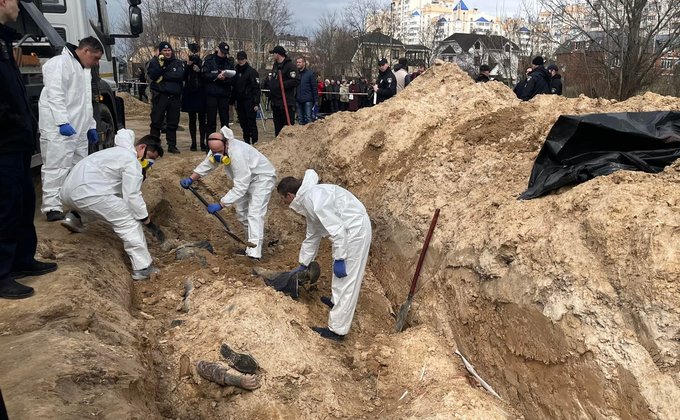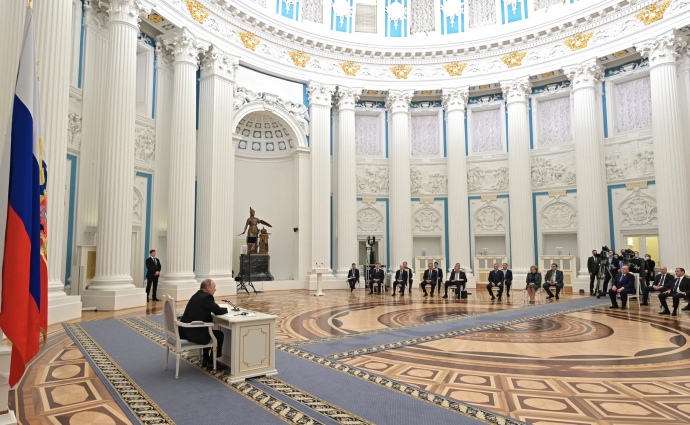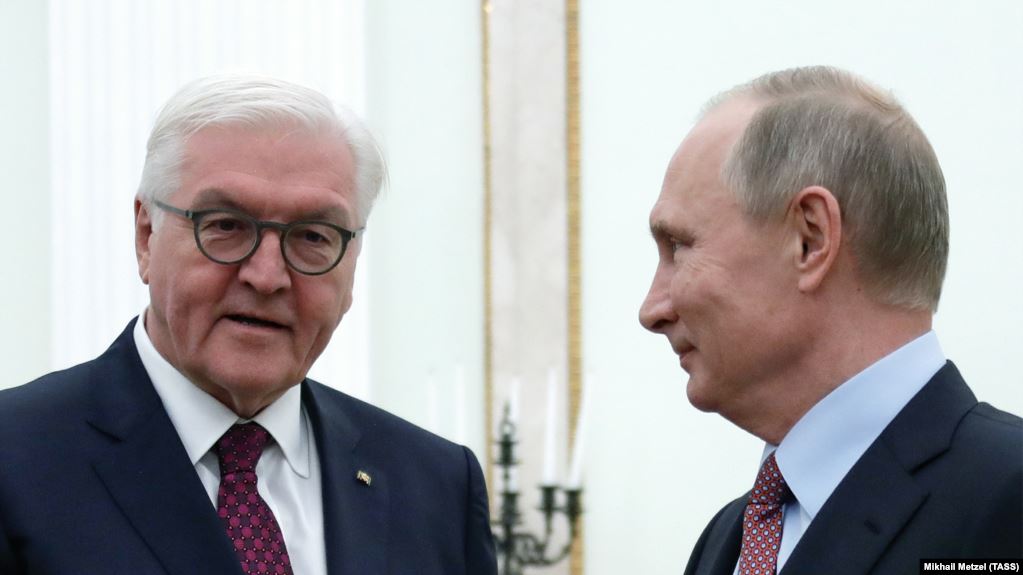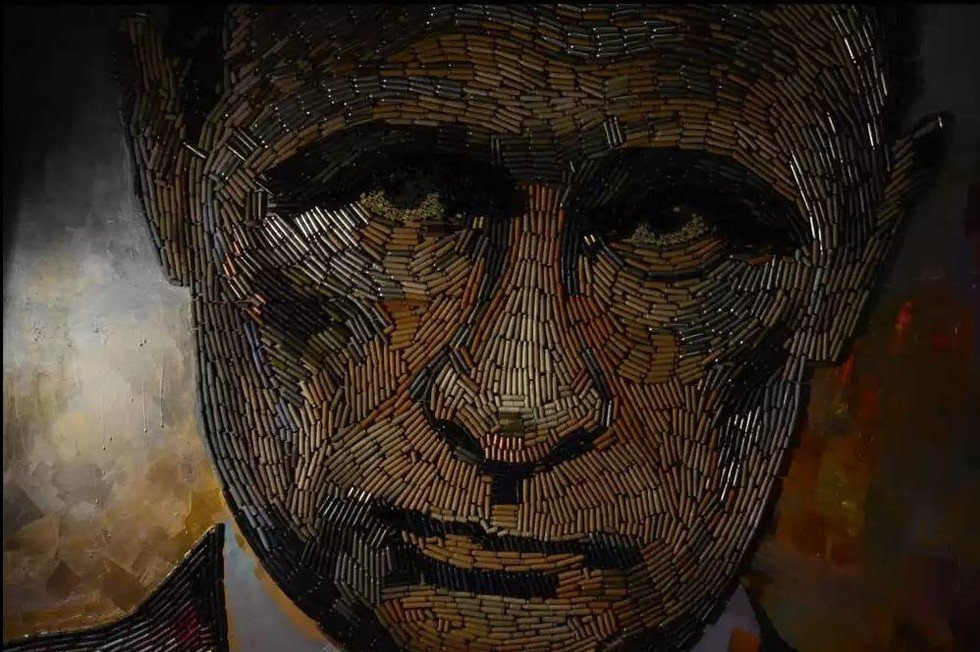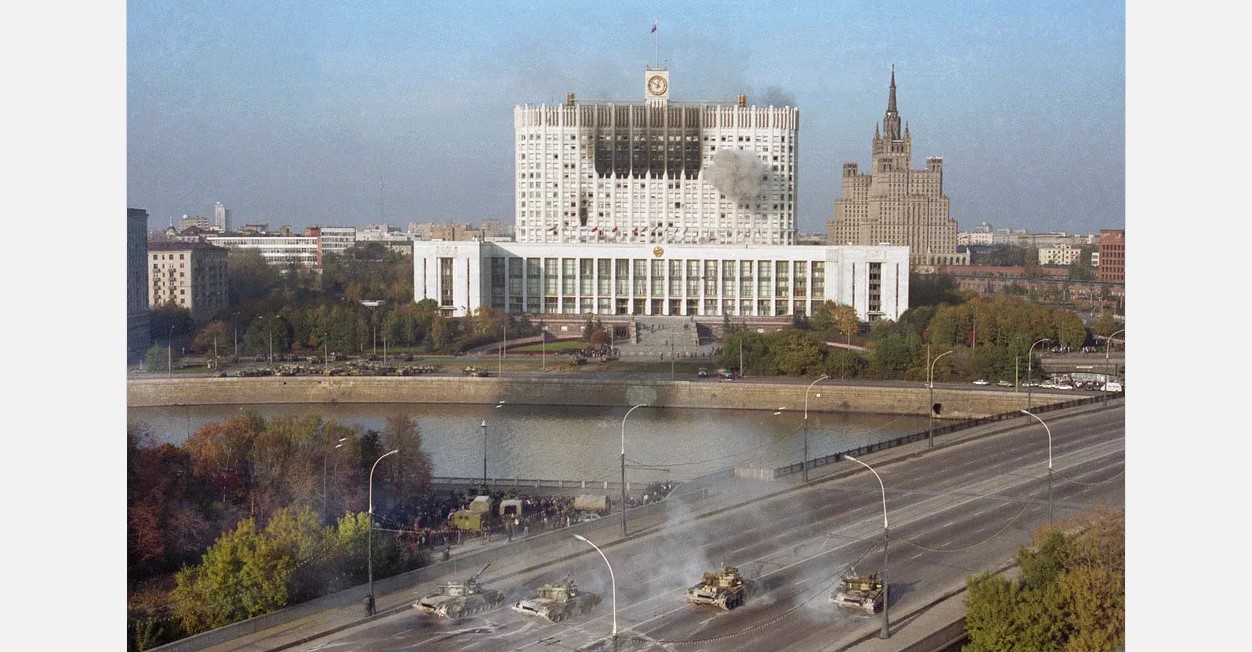Helping the international community assess the scale of the Russian war crimes and create proper mechanisms to document and justify such actions is an important goal for Ukraine and conveyed during an online discussion organized by the German Marshall Fund and the Reanimation Package of Reforms Coalition.
"Our main goal is to describe which steps need to be taken to ensure the West fully understands what's taking place in Ukraine and document all of the facts. Once we understand what it is, we can prevent such things from happening," Jonathan Katz, Senior Fellow, and Director, Democracy Initiatives, German Marshall Fund of the United States & Co-Chair, Transatlantic Task Force on Ukraine concluded.
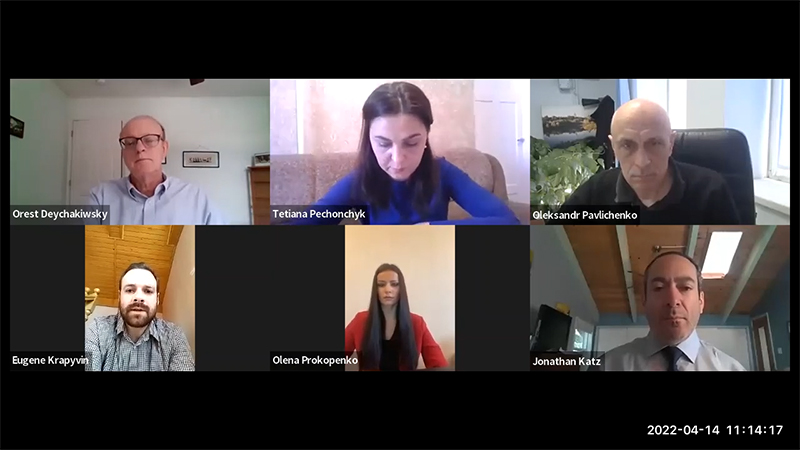
Russian war crimes and crimes against humanity have exact numbers of cases; Olena Prokopenko,
non-resident Fellow at The German Marshall Fund of the United States & Co-Chair, Transatlantic Task Force on Ukraine moderator, underlined:
"186 children are dead. Russia's forces use prohibited weapons and rape women and children. Russia's forces deport people using filtration camps. Every 4th Ukrainian left home, and 44% of the population are separated from their family."
What makes the Russian massacre a genocide, and what can international society employ to stop it?
Tetiana Pechonchyk, head of the Board, Human Rights Centre ZMINA, mentioned that this large-scale war was a commit of the inhumanity of Russia's war crimes, caused not only in Ukraine but also in Georgia, Syria, Libya, and other places where Russia was involved. This lack of accountability let western countries look at the Russian Federation with closed eyes, trading oil and gas and military equipment for all these years. Sanctions from 2014 weren't enough to persuade Russia's regime, and its authoritarianism was growing.
"Russian crimes are not occasional. This is a deliberate tactic of Russia, their method: when the Russian army hits not only soldiers but a civilian population. The initial Russian plan to invade Ukraine in a few days failed, so Russia began committing war crimes. Human Right NGOs started collecting data about it, working from bomb shelters and under attacks. And we can tell that there are exact signs of genocide," explained Tetiana:
- Russia's previous actions in Crimes and Donbas - direct destruction of Ukrainian identity: the disappearance of the Ukrainian language and ban of all national symbols - are direct messages;
- Famous Speech of Putin on 21 February when he denies the existence of Ukraine as a nation and as a state;
- Years of heavy Russian propaganda against Ukrainians, including war propaganda;
- Deportation of Ukrainians to occupied territories and then to Russia. Russia also has a deliberate policy to reteach kidnapped Ukrainian children in the Russian language;
- Disappearing of local authorities, activists, and volunteers from communities occupied by Russia. Over 130 cases were counted, some of them already dead and murdered.
How can the international community support Ukrainians in collecting this evidence? And is it possible to take Putin and his high officials to justice?
There are several important issues about Russia and its officials that need to be resolved in recent times: functional immunity, provided to high-rank officials and allowed them not to be prosecuted even if they are considered high-level criminals. And imperfect construction of the international system. For instance, UN Institutions, like the Security Council, which Russia attempts to persuade in its positive role, highlighted Oleksandr Pavlichenko, Director of the Ukrainian Helsinki Human Rights Union:
"The first step is to use the legal ways, for instance, special procedures such as an International Court of Justice, International Crime Court, and UN resolutions. Second - to eliminate all possible contacts of the functional role of Russian officials at all levels."
Since the beginning of the war, we have organized work on collecting war crimes data on the national level with prosecutors structures, secret services, and society. The synergy of the actors is heavily important. It's enormous to investigate all facts as a not routine, but war crimes have a special procedure, accordingly to standards. We need to Include international experts. Dealing with IHL standards from the very beginning is highly important. They should kelp us to create a special investigative system and tribunal worldwide, Pavlichenko added .
He also mentioned that the results of justice depend on the war results. Ukraine is fighting accordingly to the war rules, but Russia doesn't recognize any rules. The world has to think about how to avoid a new Bucha.
How strong are Ukrainians to keep standing?
Eugene Krapyvin, Expert on Criminal Justice, Center for Political and Legal Reforms, admitted that Western countries are surprised how Ukraine stands in this war and how Ukrainians are capable of protecting overdrive from Russia. Still, offensive weapons are a key - to Ukraine's victory, as long as a proper investigation of war crimes.
"I am working with the prosecutors about war crimes, building data for further procedures. However, genocide remains a hard question. We agree that this is genocide and not just war crimes on a political level. But on the international law level, the situation is much more complex. We still have to prove it.
The difference between war crimes and genocide - is the intention to destroy protected groups: nation, race, region, or ethnicity. Russian "denazification" - is an attempt to destroy Ukraine as a nation. I hope it will be the legal conclusion in ICC and the Special Tribunal. We call it Kharkiv Tribunal, but it may be named after Mariupolor Bucha , or any other town that suffered from Russia.
My conclusion - Ukraine is working on all legal frontiers to take Russia to a responsibility. A special tribunal will be held important to further isolation of Russia. The main issue is to explain that Putin doesn't want Ukraine to exit. The world must understand this."
You can view a video recording of the discussion here:
The Transatlantic Task Force on Ukraine is supported by the Black Sea Trust for Regional Cooperation, A Project of the German Marshall Fund of the United States. This event is also supported by the Ukraine Civil Society Sectoral Support Activity implemented by ISAR Ednannia in partnership with the Ukrainian Center of Independent Political Research (UCIPR) and Centre for Democracy and Rule of Law (CEDEM) thanks to the generous support of the American people through The United States Agency for International Development (USAID).
Read more:
- Russian occupiers in Makariv shelled the civilian shelter “in an instant” – Dispatch from Ukraine
- Bucha massacre: Ukraine urges ICC to gather evidence of Russian war crimes
- Irpin apartment complex shelling case being finalized for submission to International Criminal Court
- Hundreds of victims of war criminals in Russian-occupied Donbas await justice. Here is what can help them
- Bucha: a turning point–not only in Putin’s war in Ukraine, but in relations between Moscow and the world

